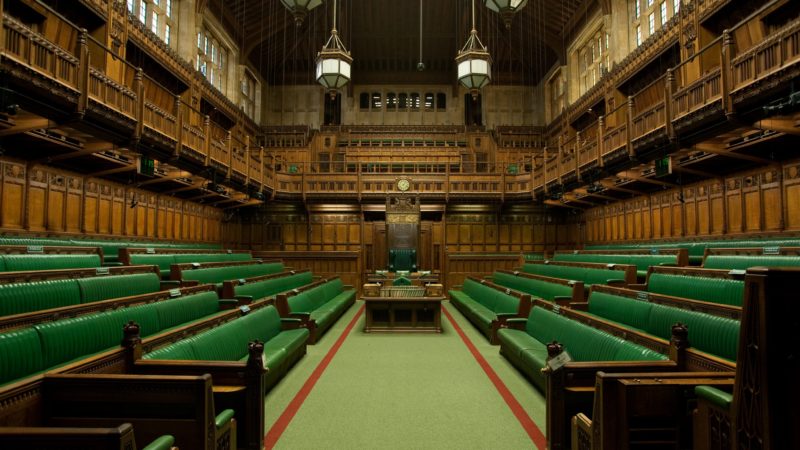
Assisted dying, and plans to reform the law in this area, will soon be debated in the House of Commons, and a decision will be made: do we grasp the nettle and shape the change to come, or leave the law in its current messy state?
In the few weeks since the general election, the Prime Minister has made it clear that his government will give this issue necessary time in the legislative agenda for a bill to be properly debated and voted upon.
Meanwhile, Charlie Falconer’s Private Member’s Bill on the issue has been chosen in the Lords, and will be introduced tomorrow and debated in the autumn. Whatever the procedural journey, it is a matter of time before the House of Commons will be seized of the issue and a decision must be made.
I believe the opportunity to change our assisted dying laws must be taken. Failing to do so would be an act of great negligence. Let me explain why.
The law as it stands
Firstly, the current law is a mess. The Crown Prosecution Service guidance, drafted under the leadership of Keir Starmer, already hints at decriminalisation.
It advises against prosecution if “the victim had reached a voluntary, clear, settled and informed decision to commit suicide”, and any person assisting was “wholly motivated by compassion”.
Accordingly, there have only been three convictions for assisting a suicide in the last decade, but many lengthy, costly, and unsettling investigations for families. The current status quo means there is an implied decriminalisation, whilst the law explicitly makes is illegal pursuant to the Suicide Act 1961, with a conviction carrying a sentence of imprisonment for up to 14 years. The reality for families grappling with the most devastating circumstances is further uncertainty and anxiety.
READ MORE: ‘Bidenomics shows growth is not enough to halt populism: poor towns must feel it’
At the same time, assisted dying is already a reality for many citizens, but not all. Around 200 million adults are able to legally access medical assistance to die in certain circumstances. In this country, liberalising reforms are being made in Scotland and the Isle of Man (where the House of Keys have given the Assisted Dying Bill its Third Reading this week).
Many wealthy citizens can simply bypass the legal minefield and travel to a different jurisdiction to end their life as they wish. It is estimated to cost around £15,000 to attend Dignitas in Switzerland. There is an inherent unfairness in the system as it is, and that must be justified by those arguing against reform.
Quite apart from the dry legal rationale for change, at the heart of this debate is the cry of human sorrow. Everyone has a story. My dear grandmother died in unnecessarily difficult circumstances. Speak to those in their final months, living in immense pain and indignity. Are we really saying that it is too difficult to provide them with the tools to act upon their own freewill?
Of course, there are very genuine and reasonable concerns. Could this be the beginning of a slippery slope towards a dystopian era of Social Darwinism? Could this thwart developments in palliative care? All must be confronted. The changes must be careful and modest.
The way forward
I favour legislation which allows for those with capacity, with a terminal illness and life expectation of six months, to have the opportunity to end their own life peacefully. The framework should be rigorous. There should be opinions from different clinicians at each stage: capacity and life expectancy. Capacity in particular should be subject to oversight and there should be a route to challenge any opinion.
These are profound issues of life and death and it can seem, at times, flippant to be discussing concepts such as the evidential burden and legal process. But of course, we have similar procedures in other areas of similar moral magnitude.
READ MORE: Sign up to our must-read daily briefing email on all things Labour
See for example international law in relation to war crimes, or closer to home, a court’s decision to remove children from a mother and place them for adoption, or to deprive a child of their liberty due to behavioural concerns.
Indeed, the courts are already embroiled in decisions around life and death, including decisions as to the clinical withdrawal of nutrition and hydration to those essentially on life support. Family members of those in such cases often complain about the lengthy delays in reaching a conclusion and the devastating effect – physically and emotionally – on the individual, and their family.
There are legitimate arguments against reform, though I disagree strongly, and they will be made in good faith by colleagues. I believe that ultimately, however, these fail to appreciate the current legal mess, the inconsistencies, the unfairness and the unnecessary suffering that we as Parliamentarians have a duty to overcome.
SHARE: If you have anything to share that we should be looking into or publishing about this story – or any other topic involving Labour or the election – contact us (strictly anonymously if you wish) at [email protected].
SUBSCRIBE: Sign up to LabourList’s morning email here for the best briefing on everything Labour, every weekday morning.
DONATE: If you value our work, please donate to become one of our supporters here and help sustain and expand our coverage.
PARTNER: If you or your organisation might be interested in partnering with us on sponsored events or content, email [email protected].




More from LabourList
‘The High Court judgment brings more uncertainty for the trans community’
‘There are good and bad businesses. Labour needs to be able to explain the difference’
‘This ruling should now remove any remaining barrier to approval of EHRC code’